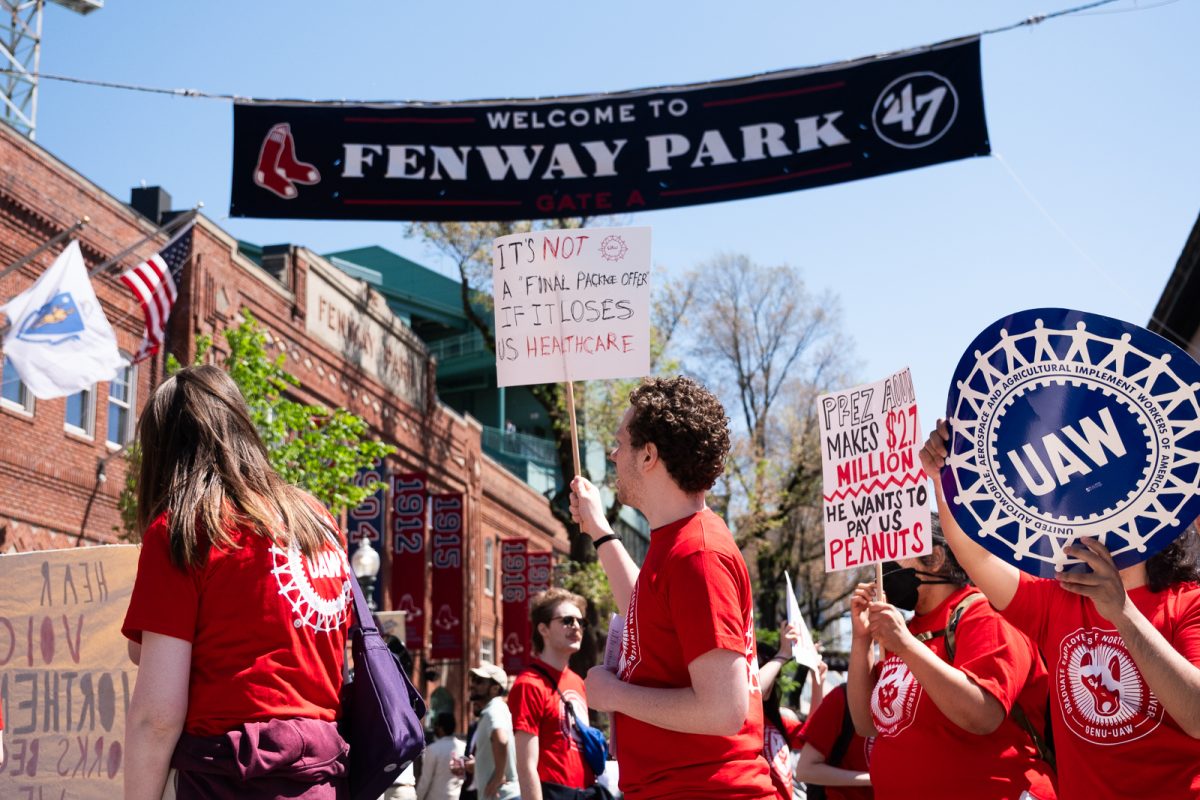First, I wish to commend Ms. Hannah Kehn for going on a co-op in Ghana and for sharing her experience with the rest of the Northeastern community (“Husky completes co-op in Africa,” Jan. 28). It is my hope that both the positive and not so positive experiences she had will go a long way in helping her acquire a better understanding of the world outside, especially Africa. This is precisely why we encourage our students to travel and work/study abroad. Bearing this important goal in mind, I offer the following observations.
Although not intended to mean NU has no institutional linkages in Ghana, portions of the article could be misinterpreted as NU not having any links to Ghana. On that note, I am happy to state that for many years, NU has had a study abroad program through an external organization with the University of Ghana. Many NU students have successfully completed their programs without a hitch.
They also recall the positive experience they had. Students interested may contact both the African-American Studies Department and the Study Abroad Office in the College of Arts and Sciences. The department has both the experienced faculty and resources, including extensive professional contacts that can be utilized by all students. Most of the faculty have lived or worked in different regions of Africa, from West, to East and Southern Africa.
Equally important, we in the department offer regular and special courses such as the Model African Union, which entails visits to African Embassies in the United States and field trips and directed studies with students for research in Africa. These courses are offered to train and prepare students for the kinds of activities Ms. Kehn went to Ghana for. In addition to being an academic unit, the Department of African-American Studies is also available to assist — and does assist — students in studying and working overseas, especially in Africa. Many of our faculty colleagues are also resource persons used by national organizations and institutions for preparing US educators for study tours of many African countries.
I might also add that although not intended, the article may be misconstrued as making gross generalizations about Africa. My assumption is that traveling, living and working in foreign countries should help us move away from incorrect generalizations. As students who come from and travel to Ghana and other parts of Africa can attest to, not all Africans use the bush, beach or gutter as toilets or are denied complete access to the Internet or modern communications. Like any region in the world, Africa has both poor and rich areas and people. With respect to spanking kids, there are parts of Ghana where that it is definitely not acceptable.
Last but not least, as we attempt to demonstrate in the courses of our department, the high cost of tuition is a foreign phenomenon that started with colonial rule. High school fees were wiped out, especially in Ghana, immediately after independence and came back after 1986 thanks to policies of International Financial Institutions based in the United States. I am referring to the International Monetary Fund and the famous World Bank.
I trust that my response will spark a healthy and useful discussion here at NU dealing with why our students should travel to, work and learn overseas and how we can help to prepare and train them to optimize the benefits. We can use the wealth of experience of the colleagues in my department and other units of NU, such as Study Abroad Office in the College of Arts and Sciences, the NU African Students’ Organization, the International Students and Scholar Institute headed by Dean Scott Quint and International Initiatives under the direction of Dr. Patrick Plunkett in the Office of the Provost. Thank you.
— Kwamina Panford is the chair of the African-American Studies Department and Associate Vice Provost for Academic Opportunity and Diversity .








